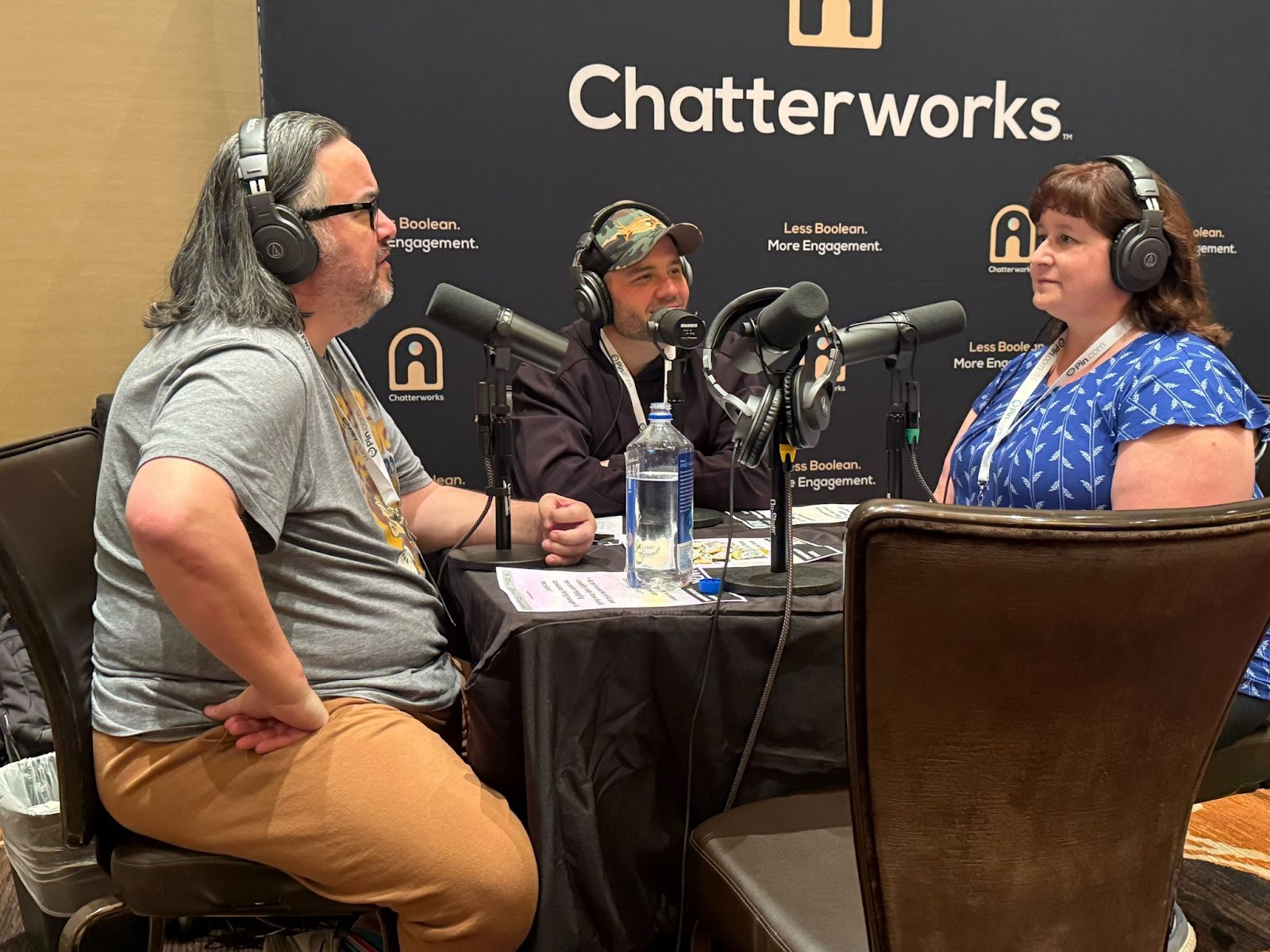
Shafiur Rahman
CEO at ChatterWorks

Elaine Orler shares candid advice on vendor relationships, strategic thinking, and why genuine conversations trump sales pitches.
Elaine Orler, Chief Strategy and Product Officer at Match2, knows firsthand how vendor interactions at industry events can either build trust or burn bridges. At the Recruiting Innovation Summit, Orler explained why so many vendors get conference engagement wrong and what they should do instead.
According to Orler, one common mistake vendors make at events is spending their entire day tied to a booth.
"There's no reason to be tethered to a table," she said. "This room is empty for four hours at a time, yet vendors sit here glued to their laptops instead of joining meaningful conversations."
Orler recommends vendors step away from their booths to attend sessions, sit at attendee tables, and actively engage. Vendors who start conversations simply by asking genuine questions—like “What challenges are you facing?”—create far better connections than those solely focused on lead generation.
"You don't have to sell something immediately," Orler advised. "Just learn something."
Orler pointed out that many vendors mistakenly view events purely as lead-generation opportunities. She believes this approach severely limits potential growth and relationship-building.
"The biggest difference between successful vendors and others is their intention," Orler explained. "Vendors who attend events aiming to learn, listen, and truly understand customer challenges always outperform those just chasing leads."
She stressed that the true value of events comes from genuine dialogue and meaningful relationship-building—not from scanning badges and sending marketing emails.
Orler emphasized the value of long-term relationships in recruiting, noting that successful recruiters focus on cultivating authentic connections.
"In recruiting, relationships consistently outperform résumés," she said. "The depth of relationships built at events often becomes the foundation of successful recruiting careers."
Orler advised recruiters and vendors alike to prioritize lasting relationships over transactional interactions. Real conversations foster trust, credibility, and long-term business partnerships.
Successful vendors don't just talk; they ask insightful questions. According to Orler, asking thoughtful questions not only creates stronger conversations but also demonstrates genuine interest in understanding clients' real needs.
"Vendors who ask better questions always win more deals," she said. "Instead of delivering a scripted sales pitch, vendors should seek clarity about what their customers truly struggle with and how they can genuinely help."
This simple but powerful shift transforms vendor interactions from transactional exchanges into strategic discussions.
Orler encouraged recruiters and vendors to rethink how they approach conferences altogether. Instead of viewing events as quick opportunities to collect contacts, she recommended using them as strategic learning environments.
"Conferences offer unmatched opportunities for learning and networking," Orler explained. "They're goldmines, but only for those who actively participate, ask smart questions, and build relationships rather than chase quick wins."

In her role at Match2, Orler sees firsthand how essential strong recruiting technology is. She noted that a robust and intentional technology stack isn't merely a luxury—it’s a baseline requirement for effective recruiting.
"Your tech stack isn’t optional," she said. "In today’s recruiting environment, having the right technology isn't just about convenience. It's about survival."
Reflecting on her career transition from consulting into product strategy, Orler emphasized the importance of intentional career moves. Her decision to join Match2 wasn’t reactive, but carefully considered.
"Intentional career moves are far more impactful than reactive ones," Orler explained. "Every professional should regularly assess what aligns best with their long-term goals and make deliberate choices accordingly."
Orler expressed concern that mentorship has lost its visibility in recruiting circles. Despite shifting trends, she stressed that mentorship remains critical for career growth.
"Mentorship isn't outdated," she said. "Too many professionals overlook it, but having mentors still significantly shapes successful careers."
Drawing from her extensive consulting background, Orler stated clearly that the best consultants listen first and advise second.
"Great consultants aren't experts because they talk the most," Orler emphasized. "They become experts by listening carefully and deeply understanding client challenges."
Ultimately, Orler challenged recruiters and vendors to shift their event mindset entirely—from selling to learning, from talking to listening.
"The best way to succeed at conferences isn't by pitching products," Orler concluded. "It's by having real conversations, asking better questions, and genuinely listening."
This article is part of Chatterworks' exclusive series, capturing actionable insights from talent acquisition leaders at the Recruiting Innovation Summit.